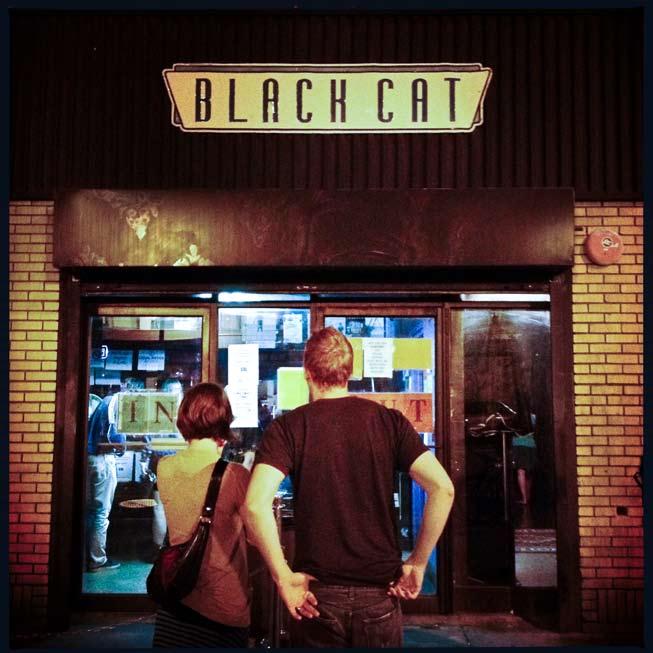The Food Issue Meet 13 Washingtonians making D.C. a better, more equitable place to eat. By City Paper staff and contributors Photographs by Darrow Montgomery Mary Blackford The change-makers who fill the pages of this year’s Food Issue shape our local food system and make D.C. an exciting place to eat, even as the District is gripped by a global pandemic. Among them are a pastry chef whose crumb of an idea turned into a global bake sale that raised close to $2 million for organizations combating systemic racism, a Mutual Aid Movement worker who brings groceries to home-bound residents at high risk of contracting COVID-19, and an entrepreneur out to prove a food hall filled with Black-owned businesses can bring tourism to River Terrace. They all envision a D.C. where residents have access to fresh, healthy food and economic opportunities no matter their address, and where multiculturalism and diversity are deeply valued and celebrated. May their stories light a fire under our collective butts to challenge what’s possible, in this region and throughout the world. —Laura Hayes
Mary Blackford, Founder, Market 7
Mary Blackford is in the process of filling 7,000 square feet of a building with Black-owned food and retail businesses. To aid in the selection, she’s held pop-ups throughout D.C. featuring 60 different vendors over the past three years. Her enterprise, Market 7, will open inside Benning Market, in Ward 7’s River Terrace neighborhood, in 2021. She beat out 600 entrants this month to win a $150,000 grant in the Pine-Sol and ESSENCE Build Your Legacy Contest that will be put toward the project. The food hall won’t just be a game changer for those who sell food and drink. Blackford’s vision is for Market 7 to be a boon for the ward where she grew up. She’s tired of the markers of success multinational corporations use as excuses for not opening stores in the neighborhood. “This idea of us being too poor to 8 july 17, 2020 washingtoncitypaper.com
get a grocery store is not true,” she says. “Other concepts can work. I want to infuse some food tourism on this side of the river, where you can experience our culture through food, family, and community events.” Many neighborhoods east of the Anacostia River are labeled as food deserts, and the dearth of healthy food options and grocers has enduring health consequences. Blackford uses another term to describe the situation. “Desert seems like a natural occurrence,” she says. “Food apartheid hones in on the fact that there are all types of economic barriers working against Black communities.” While participating in Sibley Memorial Hospital’s Ward Infinity program, which empowers residents from Wards 7 and 8 to strengthen health and wellness efforts east of the river, Blackford conducted analyses and found 67 percent of people surveyed in Ward 7 go to Ward 6 to get some or all of their food items, and 24 percent head to Maryland. “People can’t do all their shopping here and they don’t,” Blackford says. “My goal is to make sure we have what we need to live healthy and sustainable lives.” Blackford is an entrepreneur at heart. She attended the Business and Finance Academy at H.D. Woodson Senior High School before majoring in entrepreneurial studies at Babson College. While at Babson, Blackford traveled to Ghana with 45 fellow students and taught 11th graders entrepreneurship. In Ghana, she was most impressed by the community marketplaces where you can buy everything from food to beauty supplies. “A community that wasn’t rich at all had autonomy in the economy through these central marketplaces,” she recalls. Market 7 has some vendors lined up, but Blackford says she’s
going to open leasing soon. “At the end of the day, I’m a landlord,” she says. “But because of disenfranchisement that still plagues our community today, I can’t just be a landlord.” Market 7 will provide its Black-owned businesses with mentorship, training, and technical assistance. Eventually, Blackford wants to open similar food halls in Baltimore, Philadelphia, and Chicago, cities where she says Black communities have been shut out of opportunities. But first, she’ll take on the District. —Laura Hayes
Danielle Vogel, Founder, Glen’s Garden Market
Danielle Vogel comes from a long line of grocers, but the founder of Glen’s Garden Market in Dupont Circle didn’t immediately follow in her family’s footsteps. She first spent a decade on Capitol Hill advising Democrats and Republicans on environmental issues, culminating with an attempt to pass sweeping climate change legislation that died in the Senate in 2010. Feeling both defeated and determined, Vogel opened the greenest grocery store she could on Earth Day 2013. “I needed a more creative way to make incremental climate change progress while large-scale legislative change seemed impossible,” she says. “Every decision is made with the environment in mind.” Glen’s is solar-powered, stocks its shelves with products from the Chesapeake Bay watershed region to reduce its carbon footprint, offers free composting, and operates with zero food waste. “Our chefs have to play a game of Glen’s Chopped challenge,” Vogel jokes. “If there’s a floppy bunch of kale coming off of the produce shelf, they’ll make it into kale pesto.” The store wasn’t outspoken about its sustainability efforts until Donald Trump was elected. “I like to do the right thing, but








